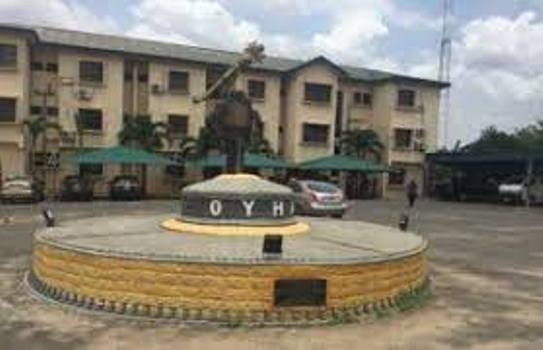
The Oyo State House of Assembly has given chairmen of concerned local government areas in the state two weeks ultimatum to respond to queries in the Statutory Audit Report for the year 2021 and 2022.
The House directed them to submit their responses to the Office of Auditor General for Local Government.
The directive was followed by a report presented by the Chairman, Public Accounts Committee of the Oyo State House of Assembly, Hon. Olorunpoto Rahaman, during the plenary on Tuesday.
In his report, Hon. Olorunpoto revealed that while considering the audit report of the 33 local government areas in the state, it was discovered that virtually all violated the Appropriation Law for the years under review by incurring excess expenditure against the approved budgets and unbudgeted expenditure.
He maintained that the reason for the excess and unbudgeted expenditure was as a result of expenditure incurred centrally by the State Joint Local Government Account Allocation Committee, which at times facilitated by the Ministry of Local Government and Chieftaincy Matters on infrastructure projects at various local governments, primary health care, education support programmes for First Technical University Scholarship, LAUTECH and others.
“All aforementioned expenditure appeared unaccounted for in the general purpose financial statement of the respective local government which is one of the documents used by the office of Auditor-General for the Local Government to prepare the audit financial statement of all the local governments,” Hon. Olorunpoto said.
The PAC Chairman further stated that the Legislative Hearing which paved the way for engagement with the officials of local government areas served as an avenue to realise that the signatures appearing in the local government approved budgets or supplementary appropriation shows that most local government officials did not carry along their legislative council.
“Most local government officials did not carry along the legislative councilors in the process of approving the budget as required by Law and Model Financial Memoranda of the Local Government which is the financial instrument and guideline of all the local governments.”
In his report, the lawmaker, however, declared that there was no loss of local government funds or fraud and misappropriation of funds recorded according to the Statutory Audit Report that was carried out.
The House, therefore, urged the Chairmen and Heads of Local Government Administration in the state to put in place an adequate internal control mechanism across LGAs in observing strict adherence to the provisions of Model Financial Memoranda of Local Government on maintenance of proper local government transactions, asset register books, personnel emolument register, pensioner register, revenue earning books, investment register, revenue collectors chart and others.
Speaking shortly after the proceedings on the constitutional roles of the Public Accounts Committee, Hon. Olorunpoto stressed that “as custodians of the public trust, it is imperative that we approach the review process with the utmost diligence, impartiality, and dedication it deserves. The findings outlined in the Auditor-General’s report provided us with invaluable insights into the stewardship of public funds, the efficiency of financial management practices, and the adherence to regulatory frameworks.
“Our role as the Public Accounts Committee (PAC) is not merely to scrutinize the findings presented to us, but to delve deeper, to question, to analyze, and to ensure that the interests of the citizens we serve are safeguarded. We must identify areas of concern, deficiencies in accountability, and opportunities for improvement, and we must do so with a commitment to fairness and objectivity.
“Our deliberations are not just a procedural formality; they are a fundamental aspect of our democratic governance, a demonstration of our commitment to upholding the principles of transparency and accountability. By engaging in rigorous scrutiny and constructive dialogue, we have the power to effect positive change, to strengthen the integrity of our institutions, and to instill public confidence in the management of public resources,” Hon. Olorunpoto said.

Be the first to comment